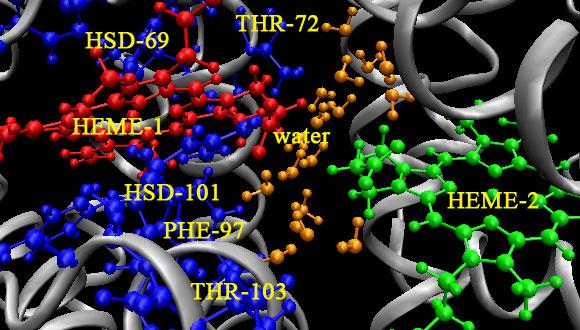Physical Chemistry Seminar: Monitoring electrochemical processes in rechargeable batteries by ex-situ and in-situ NMR spectroscopy
Dr. Michal Leskes, Cambridge
Abstract:
The continued increase in global energy consumption and the shift towards electrification of transportation call for significant improvements in current lithium ion battery technology. Advances in the current technology can be achieved by the development of new materials and novel battery chemistries leading to higher energy densities. However, the development of viable cells requires a mechanistic understanding of the electrochemical processes affecting the cell performance and its lifetime. NMR spectroscopy can provide unique insight into these processes which often involve formation of disordered phases, changes in local order and reactions at the interface between the various cell components.
Here I will describe the investigation of two novel battery chemistries, lithium-air (oxygen) and lithium-sulfur, which theoretically offer substantial increase in energy density compared to standard intercalation chemistries. In the first case, ex-situ multinuclear NMR is shown to be a powerful approach for detecting the desired formation of lithium peroxide from the reaction between lithium and oxygen, as well as identifying parasitic side reactions with the electrolyte and electrode materials which lead to capacity fading and cell failure. The lithium-sulfur system can be efficiently monitored by in-situ NMR, where spectra are acquired in parallel with the cell operation, revealing the accumulation of solid lithium sulfide in the cathode along with unwanted polysulfides dissolution into the electrolyte.
Processes of dissolution and electrolyte reactivity are also shown to be critical in high voltage cathode materials such as the spinel LiNi0.5Mn1.5O4. The challenges and benefits associated with the presence of transition metal ions will be discussed in the context of NMR: in ex-situ studies, where they can be used to study the local order and its effect on (de)lithiation of the materials, as well as for in-situ NMR where they can be used to probe dynamic processes in the cell.


